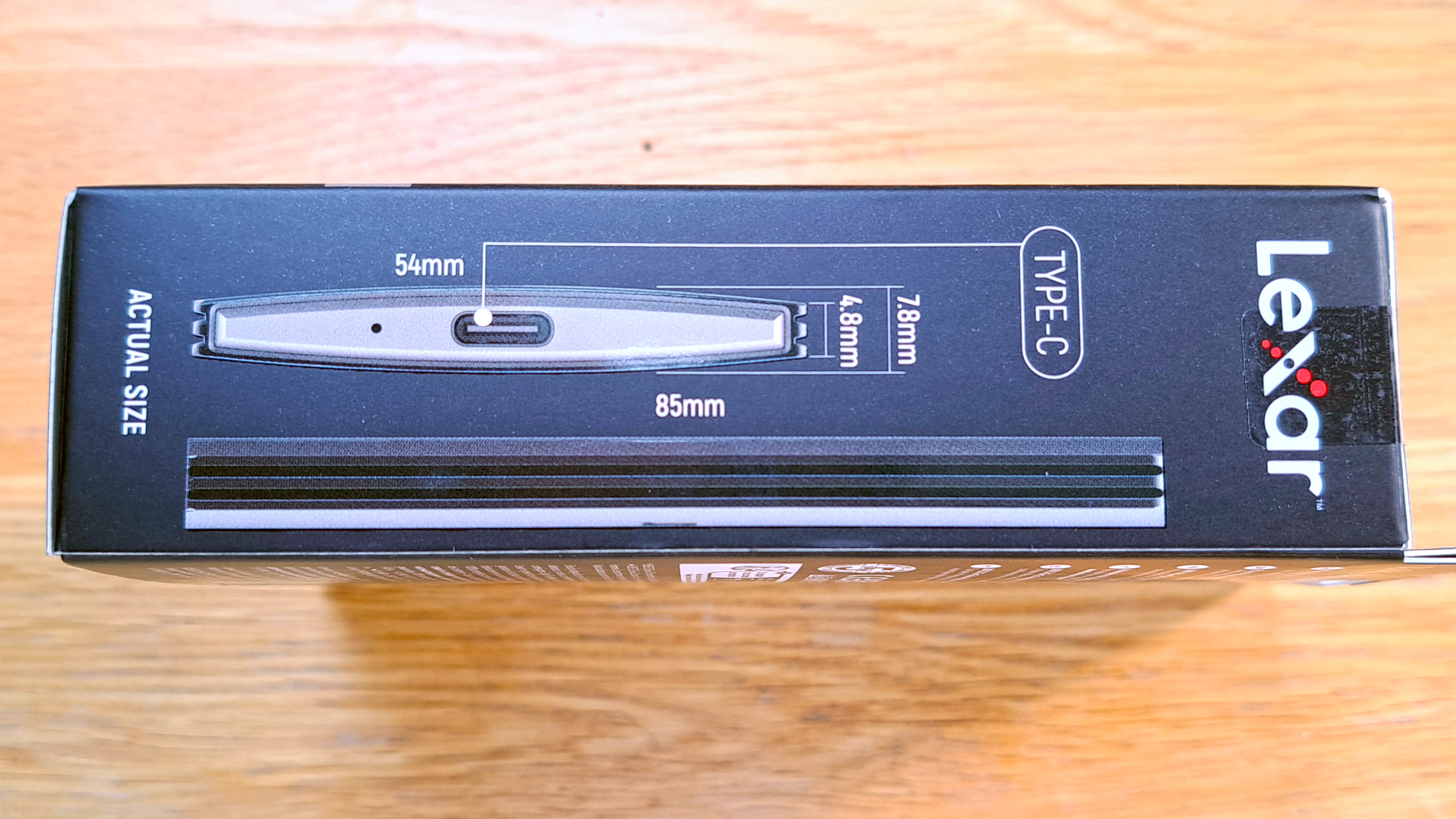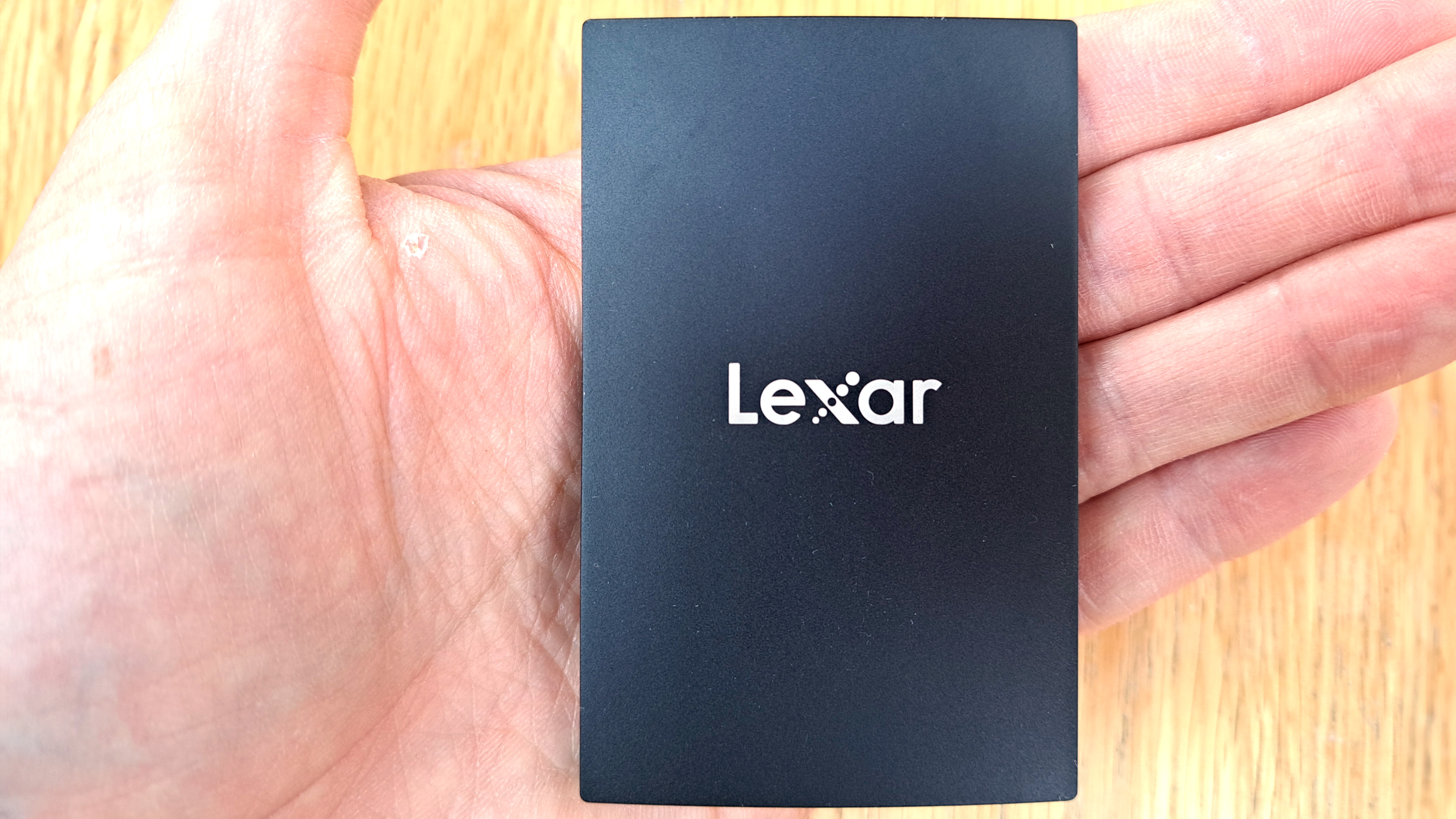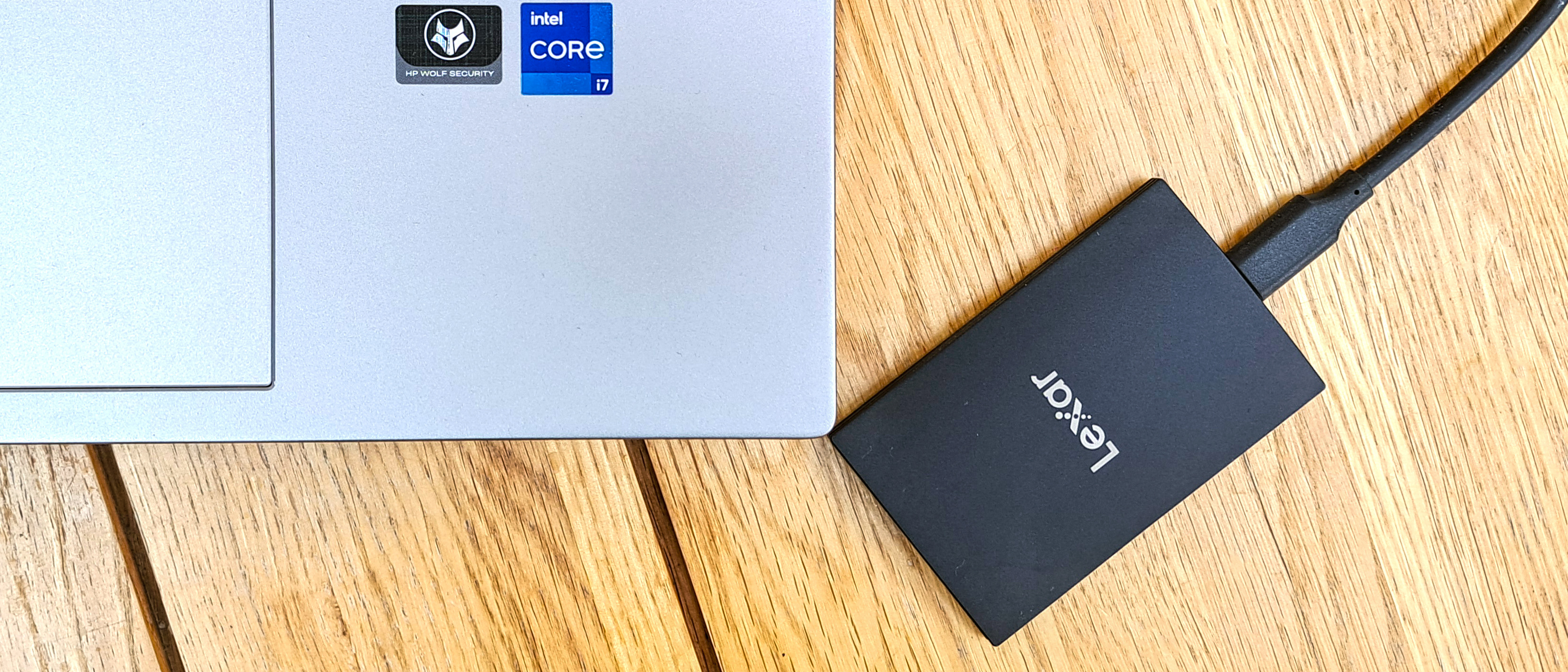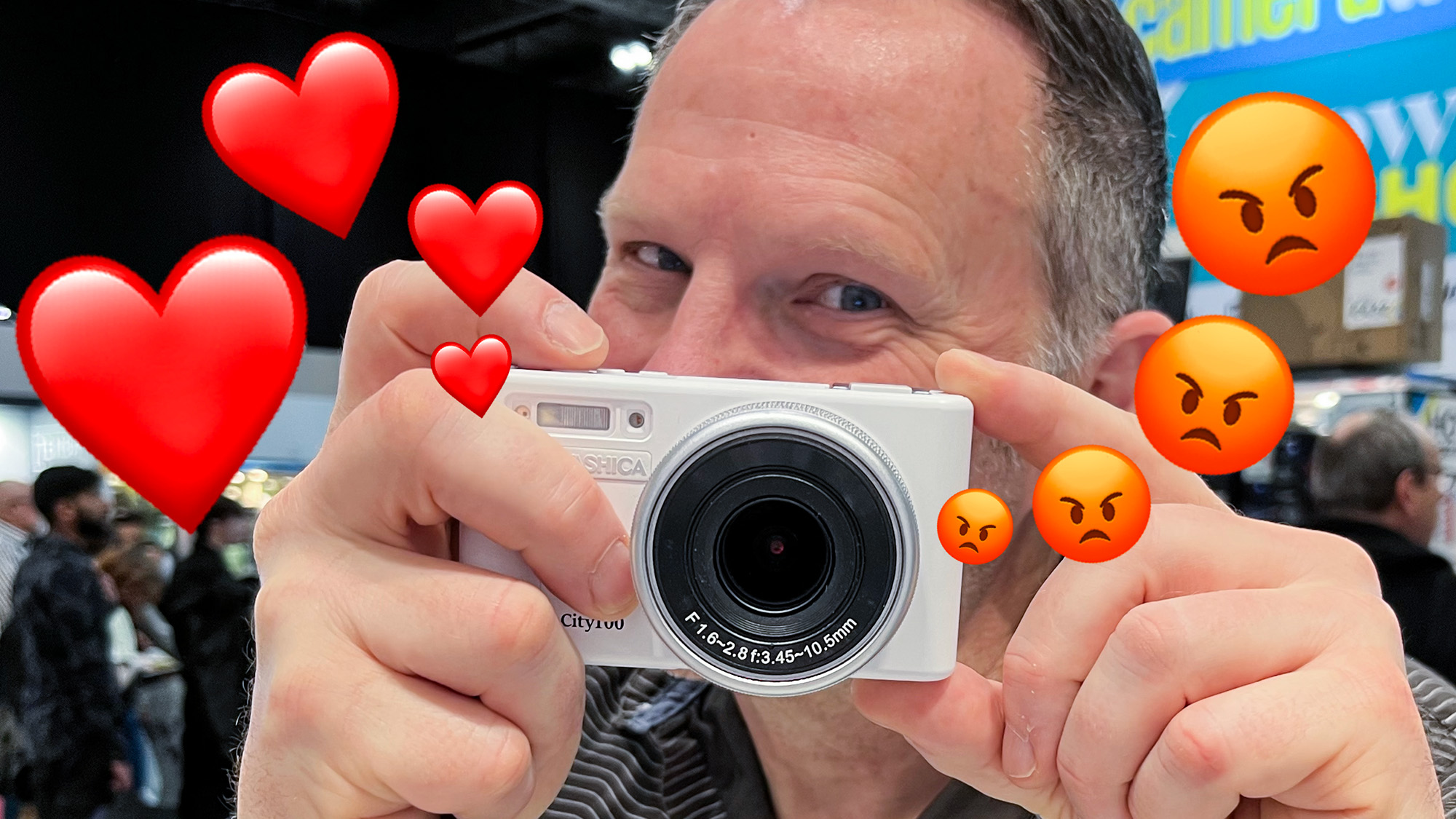Digital Camera World Verdict
The Lexar SL500 is a well made, conveniently compact portable SSD. We found it delivers very fast file transfer speeds, and though we weren't able to match Lexar's advertised speeds, we did find the SL500 plenty fast enough to make light work of typical workloads. To top it all, the SL500 is also cheaper than equivalent rival SSDs, making it a great value option if you want faster than average storage that's effortlessly portable.
Pros
- +
Sleek and compact
- +
Fast transfer speeds
- +
Four capacity options
Cons
- -
You might not get the advertised speeds
Why you can trust Digital Camera World
The Lexar SL500 is a portable SSD marketed as being compact, fast and tough. Like other portable SSDs, it uses a single USB connection for both data transfer and device power, so no separate power supply is required. The drive is available in four capacity options: 512 megabytes, 1 terabyte, 2TB and 4TB.
But what really sets it apart from more average portable SSDs are its advertised maximum transfers speeds. Lexar claims the SL500 can achieve a peak read speed of 2000MB/s, and a maximum write rate of 1800MB/s. These speeds are only possible thanks to the drive's fast USB 3.2 Gen 2x2 connection, which has twice the bandwidth of the more widespread USB 3.2 Gen 2 standard.

Lexar SL500: Specifications
| Capacity | 512GB/1TB/2TB/4TB |
| Material | Black aluminium |
| Interface | USB 3.2 Gen2x2 |
| Performance Speed | up to 2000MB/s read, up to 1800MB/s write |
| Operating Temperature | 0°C ~ 50°C |
| Storage Temperature | -40°C ~ 85°C |
| System Supported | Mac OSX 10.6+, Windows 7+, Android 4.4+, Harmony OS |
| Warranty | 5-year limited warranty |
| Size (L x W x H) | 85 x 54 x 7.8 mm (3.35 x 2.13 x 0.31 in) |
| Weight | 43g (0.09 lb) |
Lexar Professional SL600: Price & Availability
At the time of writing, the Lexar SL500 costs $170 for the 2TB version of the drive. This compares favorably with competing USB 3.2 Gen 2x2 portable SSDs like the Samsung T9 or SanDisk Extreme Pro, which for the same capacity cost around $228 and $233, respectively.
Lexar SL500: Design & Handling
The SL500 uses a USB 3.2 Gen 2x2 connection. This enables transfer speeds of up to 2500MB/s, which should be fast enough to let the 2000MB/s SL500 run to its full potential. There is a catch, however. The USB 3.2 Gen 2x2 standard is not widely used by desktop or laptop computers, most of which will still have plain USB 3.2 ports. These will operate at a maximum 1250MB/s, and in practice more like 800-900MB/s, thereby bottlenecking the SL500's transfer speeds. Thankfully, if you're rocking a newer laptop with USB 4.0, these 5000MB/s ports are backward compatible with Gen 2x2 and will let the SL500 run at its full speed.

The SL500 measures an easily pocketable 85mm x 54mm, and Lexar markets it as being ultra-thin, at just 4.8mm. This is partly true, as the SL500 is indeed 4.8mm thick, but only at its edges. As the case is a tapered shape, the central section expands to 7.8mm thick, but the tapering design combined with the matte finish do make the SSD feel like a svelte product. The aluminium exterior feels solid and of a high quality, while also helping to dissipate heat from the NAND flash memory chips within.

The SL500 is supplied with a short USB Type C to Type C cable, however a Type C to Type A adapter isn't included, so you'll need to source your own if you plan on using the drive with an older computer.

Lexar SL500: Performance
In order to use the SL500 at its full potential, you'll realistically need a laptop with USB 4.0, as computers with USB 3.2 Gen 2x2 are almost non-existent. So we broke out a high-end, USB 4-capable HP Z-Book Studio laptop to test the SL500. Our storage benchmarking software of choice is CrystalDiskMark, however after multiple attempts we could only get the SL500 to record a maximum 1067MB/s read speed and 1058 MB/s write rate. These do slightly exceed the speed a USB 3.2 Gen 2 SSD could achieve, so the drive is utilising the extra Gen 2x2 bandwidth, but only barely.

Switching to real-world file transfers, we recorded a sustained 861MB/s read speed when copying a single large file from the drive, and a sustained 634MB/s when writing the same video file back to the SL500. These are fast speeds, but nonetheless disappointing given the SL500's advertised speeds. Sadly we don't have a stack of other USB 4-capable computers with which to verify these results, but we have seen transfer speeds in excess of 2000MB/s when testing a USB 4.0 CFexpress card reader, so our test laptop is certainly capable of higher transfer speeds than the SL500 delivered.
| Header Cell - Column 0 | Read | Write |
|---|---|---|
| CrystalDiskMark benchmark | 1067.15MB/s | 1058.18MB/s |
| Real world | 861MB/s | 634MB/s |
Lexar SL500: Verdict
The Lexar SL500 is a well made, conveniently compact portable SSD. We found it connected seamlessly with our test computers, and delivered very fast file transfer speeds. It's disappointing that we couldn't get close to Lexar's advertised speeds, despite using a test computer which should let the SL500 perform at its best. However, this isn't the first time we've seen portable storage devices and memory cards fall short of their claimed speeds.
The SL500 is not without strong competition, however. It goes up against the SanDisk Extreme Pro portable SSD, and Samsung's T9 portable SSD. Both these rivals also use a USB 3.2 Gen 2x2 connection, and both advertise max speeds of up to 2000MB/s. However at the time of writing (May 2024) the SL500 undercuts both these drives on price, and is equally compact. It's a great value option if you want faster than average storage that's effortlessly portable.
Should I buy the Lexar SL500?
✅ Buy it if...
- You want sleek and smart portable storage
- You want fast transfer speeds
- You want a capacity to suit your budget and needs
⛔️ Don't buy it if...
- You're expecting real-world transfer speeds to match the numbers on the box
Ben is the Imaging Labs manager, responsible for all the testing on Digital Camera World and across the entire photography portfolio at Future. Whether he's in the lab testing the sharpness of new lenses, the resolution of the latest image sensors, the zoom range of monster bridge cameras or even the latest camera phones, Ben is our go-to guy for technical insight. He's also the team's man-at-arms when it comes to camera bags, filters, memory cards, and all manner of camera accessories – his lab is a bit like the Batcave of photography! With years of experience trialling and testing kit, he's a human encyclopedia of benchmarks when it comes to recommending the best buys.



